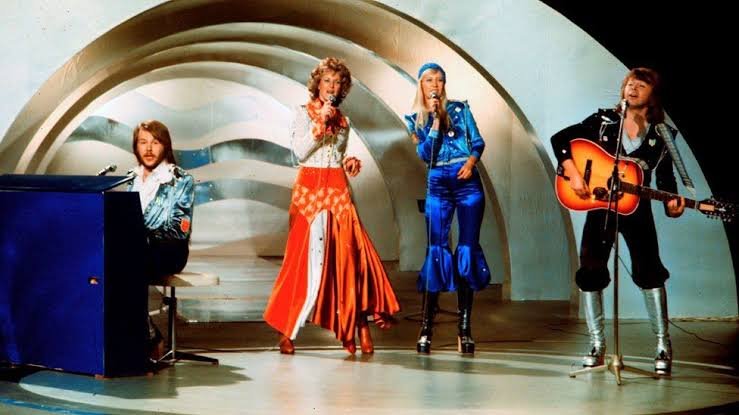
In 1974, ABBA, the Swedish pop sensation, took part in the Eurovision Song Contest with their now-iconic song “Waterloo.” This performance marked a turning point in their career, propelling them to international fame. However, during the contest, one of the more surprising outcomes was that the United Kingdom awarded them “nul points” — a decision that has since puzzled many fans and music historians alike.
The Eurovision Song Contest operates on a complex voting system where each participating country awards points to their favorite songs, excluding their own entry. Points are given based on the preferences of national juries, which, in 1974, were composed of a small panel of music industry professionals and media personalities. In the case of ABBA’s “Waterloo,” the UK jury’s decision to award them zero points was unexpected, especially considering the song’s eventual global success.
Several theories have emerged over the years to explain this curious result. One prevailing explanation is rooted in the subjective nature of the jury’s preferences. Music taste can be highly personal and varies widely across different cultures and demographics. In 1974, the UK jury may have simply preferred other entries over ABBA’s. Additionally, the UK’s own entry that year, “Long Live Love” by Olivia Newton-John, may have influenced their scoring, as juries often show bias towards their own country’s performance, either consciously or subconsciously.
Another factor to consider is the competitive landscape of Eurovision. In the 1970s, Eurovision was a fiercely contested event, with many countries submitting strong entries. The UK jury’s choice to allocate their points elsewhere could have been a strategic move to boost the chances of certain other entries that they felt were more deserving or aligned with their musical tastes at the time.
Moreover, the UK’s music scene in the early 1970s was characterized by a distinct preference for rock, glam, and progressive genres, which were significantly different from ABBA’s pop sound. The jury, composed of individuals deeply entrenched in the UK’s prevailing music trends, might not have fully appreciated or understood ABBA’s style and appeal, leading to their decision to award zero points.
Political and cultural factors also cannot be entirely dismissed. Eurovision has always been as much about cultural exchange and national pride as it is about the music. At times, geopolitical sentiments have subtly influenced the voting patterns. However, there is no concrete evidence to suggest that the UK’s decision in 1974 was driven by anything other than musical preference.
Despite the zero points from the UK, ABBA’s “Waterloo” went on to win the contest with a substantial lead, securing 24 points from other countries. The song’s infectious energy, catchy melody, and the band’s charismatic performance won over audiences across Europe and beyond. The UK eventually embraced ABBA wholeheartedly, with “Waterloo” topping the charts and the band enjoying immense popularity in Britain throughout their career.
In retrospect, the UK’s “nul points” at Eurovision stands as a curious footnote in ABBA’s storied legacy, a reminder of the unpredictable and subjective nature of musical appreciation. What remains undeniable is that ABBA’s victory at Eurovision was a pivotal moment, launching them into the stratosphere of pop music history.

